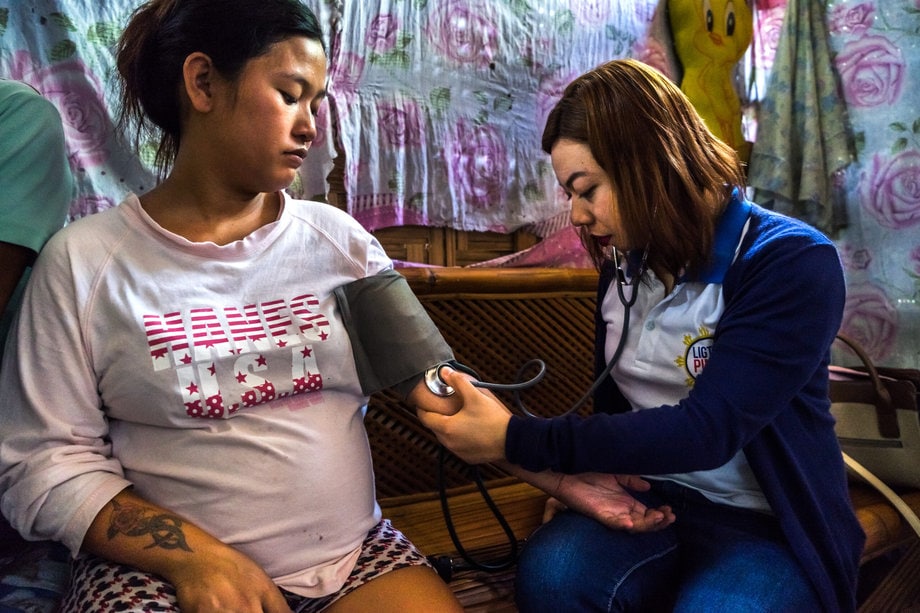Why Hypertension Is A Leading Cause Of Death Globally?

Hypertension, also known as high blood pressure, is a significant global health concern due to its high prevalence and association with increased morbidity and mortality rates. This article aims to explore why hypertension is a leading cause of death worldwide.
Firstly, it will provide an overview of the prevalence of hypertension globally, highlighting its substantial impact on public health.
Secondly, it will discuss the risk factors associated with hypertension, emphasizing the importance of understanding these factors in order to effectively prevent and manage the condition.
Moreover, the article will outline the silent nature of hypertension, which often leads to delayed diagnosis and treatment.
Additionally, it will examine the detrimental effects of hypertension on various aspects of health, including cardiovascular diseases, kidney damage, and strokes.
Furthermore, socioeconomic factors contributing to the prevalence and management of hypertension will be explored.
Lastly, the article will discuss global efforts and strategies to combat hypertension, emphasizing the significance of regular blood pressure monitoring and the adoption of prevention and management strategies.
Key Takeaways
- Socioeconomic disparities contribute to the prevalence and burden of hypertension.
- Limited access to healthcare services and inadequate treatment are common barriers for individuals with lower socioeconomic status.
- Limited access to healthy food options and physical activity increases the risk of obesity and hypertension.
- Hypertension is a leading cause of death globally, emphasizing the importance of addressing socioeconomic disparities and implementing effective prevention and management strategies.
The Prevalence of Hypertension Worldwide
Hypertension manifests as a widespread global health burden, infiltrating diverse populations across the continents like a silent and relentless force. Prevalence rates of hypertension vary significantly across regions, with certain areas experiencing higher rates than others.
According to the World Health Organization, nearly one billion individuals worldwide are affected by hypertension, making it a leading cause of death globally. Regional variations in prevalence rates highlight the complex interplay between genetic, lifestyle, and environmental factors.
For instance, high-income countries tend to have lower prevalence rates due to better access to healthcare and healthier lifestyles, whereas low- and middle-income countries often struggle with limited resources and a higher burden of risk factors such as obesity and tobacco use.
These regional disparities emphasize the urgent need for targeted interventions and global collaboration to effectively address hypertension as a major public health concern.
Understanding the Risk Factors for Hypertension
An individual’s susceptibility to elevated blood pressure can be influenced by a multitude of factors, including but not limited to genetic predisposition, unhealthy dietary habits, sedentary lifestyle, and stress. Understanding these risk factors is crucial in developing effective prevention strategies and lifestyle modifications to combat hypertension.
To address this global health issue, here are four key factors to consider:
- Genetic predisposition: Some individuals may be genetically more prone to developing hypertension due to inherited traits that affect blood pressure regulation.
- Unhealthy dietary habits: Consuming excessive amounts of sodium, saturated fats, and refined sugars can contribute to high blood pressure by increasing blood volume and causing arterial stiffness.
- Sedentary lifestyle: Lack of physical activity can lead to weight gain, which in turn can increase the risk of hypertension. Regular exercise helps lower blood pressure and improves overall cardiovascular health.
- Stress: Chronic stress can trigger hormonal changes and increase blood pressure. Learning stress-management techniques, such as meditation or yoga, can help reduce hypertension risk.
By understanding these risk factors, individuals can make informed decisions about lifestyle modifications that can prevent or manage hypertension effectively.
The Silent Nature of Hypertension
The insidious nature of high blood pressure often goes unnoticed, silently wreaking havoc on the cardiovascular system and increasing the risk of serious health complications.
Hypertension, also known as the silent danger, is often asymptomatic, meaning individuals may remain unaware of their condition until it has already caused significant damage. This silent nature is what makes hypertension a leading cause of death globally.
Without regular blood pressure monitoring and early detection, individuals may unknowingly live with dangerously high blood pressure levels for years, putting them at a higher risk of heart attacks, strokes, kidney disease, and other cardiovascular problems.
Therefore, it is crucial to emphasize the importance of regular blood pressure checks and early detection, as this can help identify and manage hypertension before it progresses to life-threatening levels.
The Impact of Hypertension on Health
Hypertension, or high blood pressure, has significant impacts on an individual’s health.
Firstly, it increases the risk of heart disease and stroke, which are leading causes of mortality worldwide.
Secondly, hypertension can cause damage to organs and blood vessels, leading to complications such as kidney disease and vision problems.
Lastly, it is important to note that hypertension can also result in complications during pregnancy, posing risks to both the mother and the developing fetus.
Increased Risk of Heart Disease and Stroke
Increased risk of heart disease and stroke is a consequence of hypertension, making it a significant global cause of death. Hypertension, also known as high blood pressure, puts strain on the arteries and can lead to serious health complications. One of the major impacts of hypertension is an increased mortality rate due to heart disease and stroke. These cardiovascular conditions are directly linked to high blood pressure and are responsible for a large number of deaths worldwide. Hypertension not only increases the risk of these life-threatening conditions but also significantly affects the quality of life. It can cause symptoms such as fatigue, chest pain, and shortness of breath, limiting physical activity and overall well-being. To understand the gravity of hypertension’s impact, the following table highlights the mortality rates associated with heart disease and stroke worldwide:
| Heart Disease Mortality Rate (per 100,000 population) | Stroke Mortality Rate (per 100,000 population) | |
|---|---|---|
| High-Income | 94.6 | 85.9 |
| Middle-Income | 133.4 | 111.9 |
| Low-Income | 170.9 | 139.6 |
This data underscores the urgent need for effective prevention, diagnosis, and management of hypertension to reduce the burden of heart disease and stroke on a global scale.
Damage to Organs and Blood Vessels
Damage to organs and blood vessels is a significant consequence of the persistent strain that high blood pressure puts on the body, evoking concerns about the long-term impact of this condition. The following are three key effects of hypertension on organ damage and vascular health:
- Heart: Hypertension can lead to the thickening and stiffening of the heart muscles, known as left ventricular hypertrophy. This condition reduces the heart’s ability to pump blood effectively, increasing the risk of heart failure.
- Brain: Uncontrolled high blood pressure can damage blood vessels in the brain, leading to a higher risk of stroke, transient ischemic attack (TIA), or dementia.
- Kidneys: The kidneys play a crucial role in regulating blood pressure. However, hypertension can damage the blood vessels in the kidneys, impairing their ability to filter waste and excess fluid from the body. This can result in kidney disease or even kidney failure.
Overall, the damage caused by hypertension to organs and blood vessels highlights the importance of early detection, effective treatment, and lifestyle modifications to prevent the long-term consequences of this condition.
Complications During Pregnancy
Complications during pregnancy related to elevated blood pressure pose significant health risks for both the mother and the developing fetus. Hypertension during pregnancy, also known as gestational hypertension, affects approximately 5-10% of pregnancies worldwide. This condition increases the risk of maternal mortality and morbidity, as well as adverse outcomes for the baby.
Pregnant women with hypertension are more likely to develop preeclampsia, a severe condition characterized by high blood pressure and organ damage. Preeclampsia can lead to complications such as placental abruption, premature birth, and intrauterine growth restriction. These complications may result in stillbirths, neonatal deaths, or long-term health issues for the infant.
Additionally, mothers with hypertensive disorders during pregnancy are at higher risk of cardiovascular disease later in life. Therefore, addressing and managing hypertension during pregnancy is crucial to reduce maternal mortality and improve maternal and fetal health outcomes.
Socioeconomic Factors and Hypertension
Socioeconomic disparities have been identified as significant contributors to the prevalence and burden of hypertension, highlighting the urgent need for equitable access to healthcare and resources.
Individuals of lower socioeconomic status often face barriers in accessing appropriate healthcare services, including regular blood pressure screenings and follow-up care. Limited financial resources may result in delayed or inadequate treatment, leading to uncontrolled hypertension and its associated complications.
Additionally, individuals with lower income levels may have limited access to healthy food options and opportunities for physical activity, predisposing them to obesity and hypertension. Furthermore, stressors related to low socioeconomic status, such as job insecurity and financial strain, can contribute to the development and worsening of hypertension.
Addressing socioeconomic disparities and ensuring equitable access to healthcare are crucial steps in reducing the global burden of hypertension and its related mortality.
Global Efforts to Combat Hypertension
Efforts to address the global burden of hypertension have been implemented through various initiatives and interventions. Recognizing the significant impact of hypertension as a leading cause of death globally, several global initiatives have been developed to combat this public health issue.
These initiatives aim to raise awareness about hypertension, improve prevention and management strategies, and enhance access to healthcare services. For example, the World Health Organization (WHO) has launched the Global HEARTS initiative, which focuses on strengthening primary healthcare systems to prevent and control cardiovascular diseases, including hypertension.
Additionally, the Global Alliance for Chronic Diseases (GACD) supports research collaborations to develop and evaluate cost-effective interventions for hypertension. These global efforts emphasize the need for comprehensive public health interventions that address hypertension at both individual and population levels to reduce its burden on global mortality rates.
The Importance of Regular Blood Pressure Monitoring
Regular blood pressure monitoring is crucial for maintaining optimal cardiovascular health and preventing potential health risks. Hypertension, or high blood pressure, is a chronic condition that affects millions of individuals worldwide and is a leading cause of death globally.
Lifestyle modifications play a significant role in managing hypertension. These modifications include adopting a healthy diet low in sodium and high in fruits, vegetables, and whole grains, engaging in regular physical activity, maintaining a healthy weight, limiting alcohol intake, and quitting smoking. Additionally, medication can be prescribed to control high blood pressure. Different classes of antihypertensive drugs, such as diuretics, beta-blockers, angiotensin-converting enzyme inhibitors, and calcium channel blockers, can be used to lower blood pressure.
However, it is important to note that medication should be used in conjunction with lifestyle modifications, as they work synergistically to effectively manage hypertension and reduce the risk of cardiovascular events. Regular blood pressure monitoring allows individuals and healthcare professionals to assess the effectiveness of lifestyle modifications and medication, ensuring that blood pressure remains within a healthy range and reducing the risk of complications associated with hypertension.
Taking Control of Hypertension: Prevention and Management Strategies
Implementing effective prevention and management strategies is crucial for individuals to take control of their blood pressure and reduce the risk of cardiovascular complications.
To prevent hypertension, lifestyle changes play a significant role. These include maintaining a healthy weight, following a balanced diet low in sodium and high in fruits and vegetables, engaging in regular physical activity, limiting alcohol consumption, and avoiding tobacco use. These lifestyle modifications not only help in preventing hypertension but also contribute to overall cardiovascular health.
Additionally, managing hypertension with medication is often necessary for individuals who have already developed high blood pressure. Medications such as diuretics, beta-blockers, ACE inhibitors, and calcium channel blockers are commonly prescribed to control blood pressure levels.
It is important for individuals to work closely with their healthcare providers to find the most effective treatment plan that suits their specific needs.
Frequently Asked Questions
What are the symptoms of hypertension?
Symptoms of hypertension include headaches, dizziness, chest pain, and shortness of breath. Risk factors such as obesity, smoking, excessive alcohol consumption, and family history of high blood pressure contribute to the development of hypertension.
What are the different stages of hypertension?
The stages of hypertension include prehypertension, stage 1 hypertension, and stage 2 hypertension. Hypertension prevention strategies focus on lifestyle changes such as maintaining a healthy weight, exercising regularly, reducing sodium intake, and managing stress. Genetics play a role in the development of hypertension, with certain gene variations increasing the risk.
How does hypertension affect different organs in the body?
Hypertension negatively affects cognitive function, leading to impaired memory, attention, and executive functions. It also plays a role in the development of kidney disease by causing damage to the blood vessels and impairing renal function.
Can hypertension be cured completely?
Hypertension cannot be cured completely, but it can be effectively managed through lifestyle changes. Long-term effects of hypertension include increased risk of heart disease, stroke, and kidney damage. Lifestyle modifications, such as regular exercise and a healthy diet, can help in the treatment of hypertension.
Are there any natural remedies or alternative treatments for hypertension?
Herbal supplements and lifestyle changes can be used as alternative treatments for hypertension. These interventions, such as dietary modifications, regular exercise, and stress reduction techniques, may help lower blood pressure levels and reduce the risk of cardiovascular complications.









